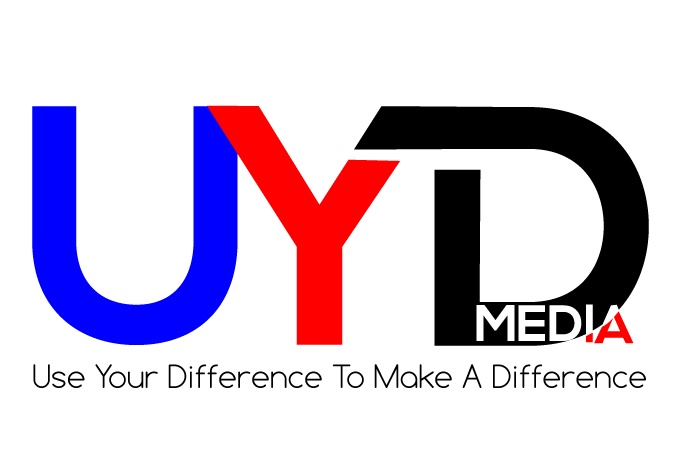(Funmi Adebayo): What is NISM YPro about and what is the ultimate goal?
NISM YPro is the Young Professionals sub-group of an established professional organisation called Nigerians in the Square Mile (NISM).
We are a growing think tank, aiming to inspire and empower young professionals to seek excellence in their careers, while using the expertise they are building to develop fresh approaches to socioeconomic problems in Nigeria.
We plan to facilitate and expand on the objectives of our parent group by reaching out to a younger and more diverse demographic; fostering links between Nigerians at home and abroad; and encouraging the exchange of human capital.
Ultimately, we want to build a thriving young community, which develops and nurtures future leaders both in Nigeria and its diaspora.
(Funmi Adebayo): Nigeria is so often called the giant of Africa due to the amount of natural resources yet more than half of the people live in abject poverty. Why do you think this is so?
The focus on the link between natural resources and poverty can cloud attempts to understand the roots of Nigeria’s current problem with poverty. The reality is that Nigeria’s GDP is no longer driven by oil. The economy is now largely driven by services, particularly telecoms and financial services (with agriculture hot on their heels), though these fields are nowhere near as developed as they are in many other parts of Africa.
In order to understand and address poverty levels, greater emphasis must be placed on our fiscal system: how the government derives its revenues and ultimately how it spends it to address social problems. Currently, around 70% of its revenue is driven by oil. This is clearly unsustainable, and the drastic drop in oil prices has starkly highlighted this fact. There is also the perennial problem of corruption which has led to consistent failures in efficiently allocating resources.
On a broader note, there is a much larger question about how poverty is measured. It is currently based on our GDP/GNI metrics, which do not paint the full picture of Nigeria’s wealth as it doesn’t take the country’s huge cash economy into account. I wrote an article which expands on this and can be found on our blog.
(Zephia Ovia): Some would say that a lot of the problems can be traced to disputes brought about by tribalism and religious differences. Do you agree?
Perceptions of cultural differences are undeniably a major stumbling block in Nigeria’s journey to progress.
Though these problems weigh heavily on the country, other factors pose as much of a challenge (if not greater) to the country’s stability and development. The issue of corruption in Nigeria is one. Lack of government accountability leads to the misallocation of public funds and fosters inequality. Our over-dependence on oil revenue is another significant problem which must be urgently addressed.
Cultural differences are just one of the many problems Nigeria faces. There is room for improvement in all areas.
(Deborah Adigun-Hameed) The other sources of problems you hear are corruption and illiteracy. In your opinion, what steps need to be taken to alleviate this problem?
Illiteracy and poverty go hand in hand. Before we begin to address inadequacies in our education system, we have to work hard to ensure that more people have the means to go to school in the first place. Once people enter the education system, we then have to look at what they are being taught. It may be necessary to review the curriculum in line with international standards. This also involves equipping teachers with the training and resources they need to do their jobs to the best of their ability.
When most people think of corruption, they think of the embezzlement of public funds or other headline-grabbing tales of fraud. They tend not to think of paying someone to manipulate an NYSC posting or sit an exam on their behalf. This is why addressing corruption can only happen slowly; it requires a renewed awareness of how these values have permeated throughout our society. Anti-corruption efforts can only go so far if we don’t start fostering societal attitudes which breed the kind of leaders we want to see in office.
(Deborah Adigun-Hameed) Despite all this many foreign investors are attracted to Nigeria, why would you say this is so?
Nigeria is attractive to investors for various reasons.
Firstly, Nigeria has a large population of skilled and unskilled low cost workers which will attract investors from large multinational companies. This is further enhanced by the comprehensive packages of incentives introduced by the Government to attract such companies.
Secondly, we have a growing middle class whose increasing sophistication continues to drive greater in demand for imports that may not be readily available in the domestic market.
Thirdly, recent improvements in financial sector mean that investors have easier access to working capital and credit facilities than in the past, and also companies have a less difficult time raising finance from investors.
These factors show that, in spite of our problems, Nigeria offers attractive investment opportunities and these must be encouraged further to stimulate more growth.
(Funmi Adebayo): How can the youth go about fixing these problems?
We can go about fixing these problems, by first knowing what they are. The reality is that most of the information about Nigeria is not actually from Nigeria and, even if it is, is based on external sources. We need to look around us, and work out what the real problems are first.
Then, the next step is to think of new, fresh and relevant solutions. Proposals by international institutions simply have not and will not work in Nigeria, because they do not take into account our cultural nuances or come from the very people they seek to help. We have an amazing opportunity to build effective solutions from scratch, adapting, improving and learning from other systems. If our young, vibrant and large population can throw its weight behind this, we can propel Nigeria into world leadership.
(Zephia Ovia): What role do you see Nigerians in Diaspora playing in the elevating Nigeria
Nigerians in the Diaspora can change the face of Nigeria simply by being informed about what’s going on in Nigeria, and forming sustainable solutions to tackle ongoing problems in their country. I’m a big advocate for moving back to your home country after studying or working abroad. I strongly believe this is a major way to invest in the country and reduce our long-running problem with brain drain.
(Zephia Ovia) Nigeria recently took over South Africa as the biggest economy in the continent. What does this mean for Nigeria?
Although Nigeria is now officially the largest economy in Africa following the re-basing of our GDP, this narrative isn’t necessarily reflected in the society. In comparison to South Africa, Nigeria’s GDP per capita is still lower. There are still high levels of inequality, illiteracy, rising poverty levels and a huge informal sector. With this new position, Nigeria has been put on a pedestal to be a game-changer for the African continent. This means there is potential for more Foreign Direct Investment (FDI), Foreign Portfolio Investments (FPI) and potential to attract more tourists. Nigeria is capable of operating on a global scale as an emerging economy but will need to put the right institutions in place to fully maximise its new position for the sustainable benefit of Nigerian citizens.
(Deborah Adigun-Hameed) How can Nigerians introduce technologies to solve problems?
One of the major problems we have already mentioned is corruption. Technology can help tackle corruption by promoting transparency through accurate data collection and records. Investment in technology would also be of benefit to Nigeria’s infrastructure, which would in turn improve the nation’s comparative advantage and attractiveness to investors. Needless to say, investment creates jobs. Also, possibly more importantly, using new technology is likely to require training, and this can have a knock-on effect of not only boosting employment but producing a more skilled workforce.
(Zephia Ovia): Describe what culture is like in Nigeria?
The Nigerian identity is extremely heterogeneous, with 250 different ethnic groups. Different languages are spoken, people abide by different customs and traditions, yet we remain one Nigeria. Our culture is rich in its diversity and this is a great source of pride. We can do more as a country do more to harness the power of such a great national asset.
(Funmi Adebayo): How do you all use your differences to make a difference at NISM YPro?
We use our differences, through the diversity of our careers, our experiences and our networks to bring together bright and passionate Nigerians. We believe that this professional approach is part of our edge. We are not a group of people who have fancy, grandiose ideas, with little professional knowledge and limited ability to follow through. We are particularly focused on aligning members with issues that relate to their careers and all seek to contribute our professional experiences and skills, to continually improve our approach in tackling the social issues we are passionate about.

(Funmi Adebayo): Where can we find out more about NISM YPro and what you’re up to?
You can find out about the wider think-tank NISM on nism.co.uk, as well as Linkedin. You can find out about us specifically via our social network platforms, and also by joining our mailing list.






